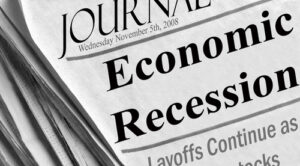
As a factoring broker, staying on top of economic conditions is more than just smart — it’s essential. The strength of industries like manufacturing, construction, and housing has a direct impact on the demand for working capital solutions. Recent data shows that while the U.S. economy as a whole is still growing, several core sectors are flashing recession-like signals that brokers should pay close attention to.
Manufacturing Slows into Contraction
The ISM Manufacturing Index has remained below 50 for multiple months, a clear sign that U.S. manufacturing is in contraction. Factories are reporting weaker new orders, and employment in the sector is shrinking. In August alone, manufacturers cut about 12,000 jobs, bringing year-over-year job losses to nearly 78,000. For brokers, this slowdown highlights the potential for more business owners to struggle with cash flow, creating openings for alternative financing solutions.
Housing and Construction Strain
The construction sector is also under pressure. Housing starts fell by 8.5% in August, dropping to an annualized pace of about 1.3 million units. That represents one of the sharpest monthly declines since the 2008 financial crisis. New permits, which indicate future construction activity, are also slipping. For companies in building supply, contracting, or related industries, the downturn can translate into tighter margins and longer payment cycles — exactly the conditions that factoring was designed to address.
units. That represents one of the sharpest monthly declines since the 2008 financial crisis. New permits, which indicate future construction activity, are also slipping. For companies in building supply, contracting, or related industries, the downturn can translate into tighter margins and longer payment cycles — exactly the conditions that factoring was designed to address.
Jobs Market Weakening
On the employment side, while the overall unemployment rate remains relatively low, job growth has slowed and downward revisions to earlier reports reveal fewer jobs created than initially reported. The service sector is still providing support, but industrial employment is clearly under pressure. For B2B companies, labor costs combined with slower sales growth can create the kind of cash flow gaps that require outside funding.
GDP Headlines vs. Reality on the Ground
National GDP numbers continue to paint a “rosier” picture than many small business owners feel in reality. While headline growth remains positive, it masks weakness at the industry level. From manufacturing floors to construction sites, the slowdown is real and measurable.
What This Means for Brokers
While some economists caution against calling this a recession just yet — the definition requires broad and sustained economic decline — the warning signs are undeniable. Brokers should recognize that these conditions often lead business owners to search for immediate working capital solutions when traditional lenders tighten credit.
And here is the good news: factoring is a recession-resistant industry. When banks pull back, and when cash flow gaps widen, established brokers are often in the best position to provide alternatives. Economic tough times do not shut down opportunities — they multiply them. For factoring brokers, this environment represents not just a challenge, but one of the strongest growth opportunities in the industry.
Takeaway: The economy is wobbling, but it hasn’t fully fallen. Stay alert, build your networks, and position yourself as a trusted partner. As traditional credit constricts, factoring brokers who are prepared can thrive. For those new to the industry, consider the IACFB’s PALs Program as an Associate. With its low cost, comprehensive training, and Academy marketing support, the PALs program is the perfect solution to end a living paycheck-to-paycheck and actually thrive in possible tough times ahead.

